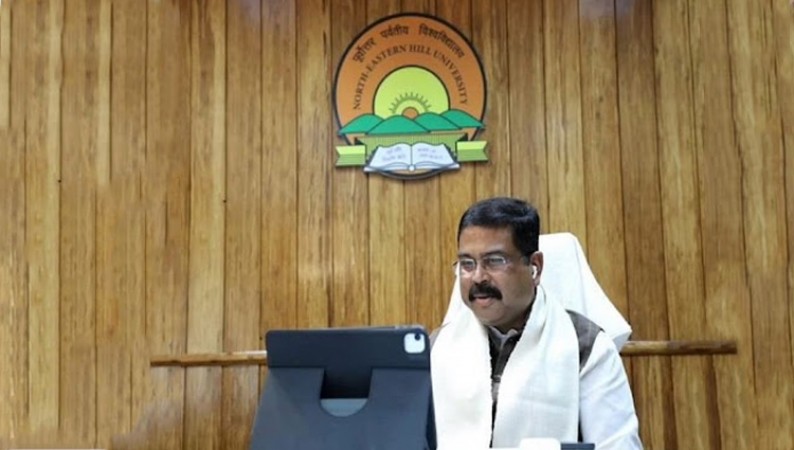
NEW DELHI: The Union Cabinet on Wednesday approved a Rs 27,360-crore scheme for the development of more than 14,000 schools across India. Notably, PM Schools for Rising India (PM-SHRI), is expected to benefit 187 lakh students.
Under the scheme, over 14,000 schools, including Kendriya Vidyalayas and Navodaya Vidyalayas as well as schools run by state governments and local bodies, will be strengthened to emerge as PM-SHRI Schools, Union ministers Dharmendra Pradhan and Anurag Thakur told reporters after the Cabinet meeting.
Prime Minister Narendra Modi announced the scheme on September 5 on Teachers Day to upgrade and modernise existing schools from amongst those managed by the central and state governments, as well as local bodies.
The total project cost would be Rs 27,360 crore for five years, of which the central share would be Rs 18,128 crore.
The government expects this scheme to benefit 187 lakh students and these schools will be monitored vigorously to assess progress and understand the challenges faced in the implementation of the new National Education Policy (NEP), 2020.
As per the vision of NEP 2020, "PM SHRI will provide high-quality education in an equitable, inclusive, and joyful school environment that cares for children's diverse backgrounds, multilingual needs, and different academic abilities and makes them active participants in their own learning process," said Pradhan, Minister of Education and Skill Development.
By offering mentoring, the PM SHRI Schools will act as a leader for other schools in their respective regions. These schools would be built as "green schools," Pradhan said, featuring eco-friendly features like solar panels and LED lighting, nutrition gardens with natural farming, trash management, and plastic-free environments.
The study of environmental customs and practises, a climate change-related hackathon, and raising awareness to embrace a sustainable lifestyle will also be covered. Water harvesting and conservation will also be covered.
The pedagogy used in these schools will be more inquiry-driven, discovery-oriented, learner-centered, discussion-based, flexible, and pleasant. It will also be more immersive, holistic, and integrated, Pradhan said.
The system would also include a focus on the learning objectives for every student in every grade, assessments at all levels based on conceptual comprehension, and the application of information to real-life circumstances.
It will also include assessment the effectiveness of the resources in terms of availability, sufficiency, suitability, and utilisation for each of the domains and their key performance metrics, and the systematic and planned filling of gaps. Linkages with local industry and Sector Skill Councils for improving employability and offering greater work possibilities will also be explored.
"A School Quality Assessment Framework (SQAF), defining the key performance indicators to measure results, is being developed. To achieve the desired standards, quality evaluations of these institutions would be conducted on a regular basis, Pradhan said.
Cabinet approves policy for long-term leasing of railway land up to 35-yrs
Govt approves provision of pulses to states at discounted rates
Yogi govt's big announcement for the unemployed